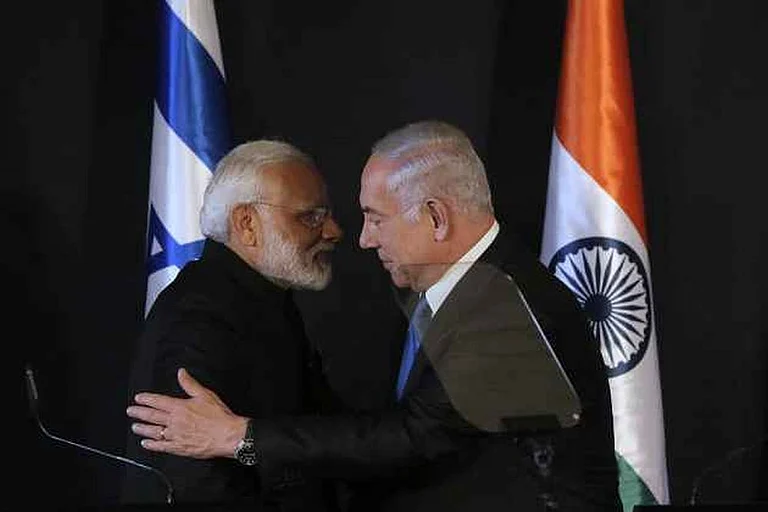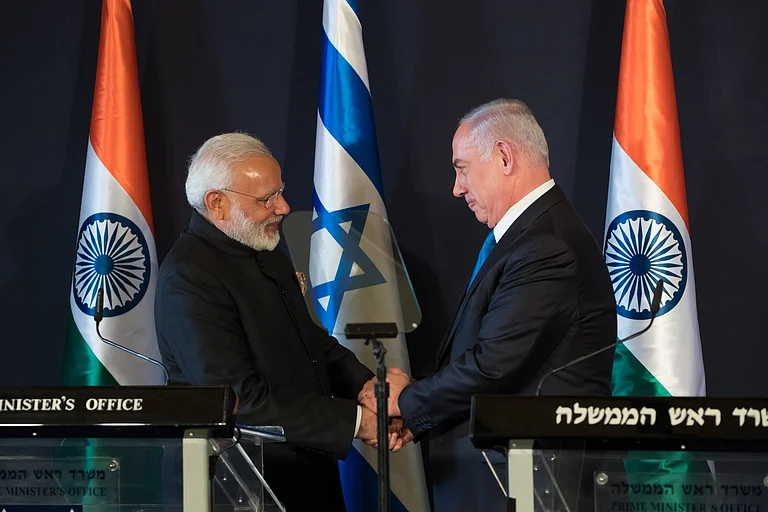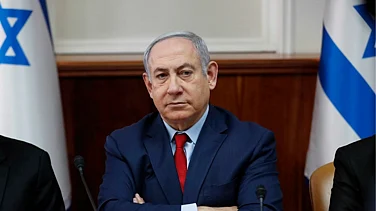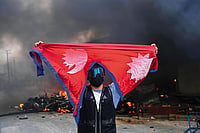
Summary of this article
UN World Food Programme head Cindy McCain says famine has already struck Gaza City and is spreading without urgent aid.
Israel insists over 300 aid trucks enter daily but aid groups warn supplies are far below what is needed.
Ceasefire talks remain stalled as Egypt and Qatar await Israel’s response to a 60-day truce proposal.
The head of the U.N. food agency spoke with Israeli Prime Minister Benjamin Netanyahu about the pressing need for additional aid, saying on Thursday, August 29, 2025, that it was "very evident" that there is not enough food in the Palestinian enclave.
According to AFP, the world's foremost expert on food crises, famine struck the largest city in the Gaza Strip last week and is expected to spread throughout the region in the absence of a truce and an end to limitations on humanitarian aid.
Starvation was occurring in Gaza, according to Cindy McCain, executive director of the World Food Program, who spoke to The Associated Press.
“I personally met mothers and children who were starving in Gaza," she said. "It is real and it is happening now,”
Netanyahu, she said, was “obviously very concerned that people aren’t getting enough food.” In the past, he has denied that there is famine in Gaza and said the claims about starvation are a propaganda campaign launched by Hamas.
“We agreed that we must immediately redouble our efforts to get more humanitarian aid in. Access and security for our convoys is critical,” McCain said.
International pressure on Israel, which has been battling Hamas since the militant group's devastating strike on October 7, 2023, has risen as a result of the famine declaration. There have been no visible indications of recent ceasefire efforts, and Israel now claims it intends to take control of Gaza City and other Hamas strongholds.
Israel on Wednesday demanded a formal retraction of the designation, which was made by the Integrated Food Security Phase Classification, or IPC, the authority on food emergencies.
More than 300 humanitarian supply trucks enter Gaza daily, the majority of which are carrying food, according to COGAT, the Israeli military organisation responsible for delivering help to the region, which was announced on Thursday.
AFP reported that aid groups say it’s not nearly enough after 22 months of fighting, the blockade of aid earlier this year and the collapse of food production in Gaza. McCain spent most of Tuesday on a tour of Gaza, speaking to displaced families living in tents and facing hunger.
“I got to meet a family who had come from the North, there were 11 of them, and they’d come from the North and they literally had not had enough food at all and they still don’t have enough food," she said.
McCain said her program is getting more food into Gaza, but said a surge in food supplies was needed.
Famine in Gaza is "a present-day catastrophe," according to U.N. Secretary-General Antonio Guterres, and the beginning of increased Israeli military operations marks "a new and dangerous phase."
According to him, it will have "devastating consequences" and result in the forced relocation of hundreds of thousands of weary and frightened inhabitants.
He claimed that Gaza was "filled with bodies, debris, and examples of what may be grave breaches of international law."
The Qatari Foreign Minister stated on Thursday that mediators Egypt and Qatar were still awaiting Israel's reaction to the 60-day truce agreement in Gaza that Hamas had approved.
According to Arab mediators, the proposal, which was presented to Israel earlier this month by mediators from Egypt and Qatar, called for a 60-day ceasefire in return for the release of 10 hostages who are still alive and the return of the bodies of 18 hostages who have died. It demands that Israeli forces leave Gaza and move into a buffer zone.
AFP reported, Israeli aircraft struck the capital of Yemen, Sanaa, on Thursday in retaliation for attacks by the Houthis rebels, an Arab group supported by Iran, who have been attacking ships in the Red Sea and launching missiles and drones into Israel for more than 22 months. According to the Houthis, the attacks are an act of solidarity with the Palestinians.
Nearly 63,000 people have been killed in Gaza since the war began, according to the Palestinian Health Ministry. The agency reported that 71 people were killed by Israeli strikes over the past day, while scores more were injured. While the ministry does not differentiate between civilians and combatants, it says more than half of the dead were women and children.
The ministry is part of the Hamas-run government and staffed by medical professionals. The United Nations and independent experts consider it the most reliable source on war casualties. Israel disputes its figures but has not provided its own.
The U.N. chief said Israel, as the occupying power, has obligations to protect civilians, facilitate far greater humanitarian access and meet their essential needs.
The systematic dismantling of systems that provide food, water and healthcare, Guterres said, “are the result of deliberate decisions that defy basic humanity.”





















